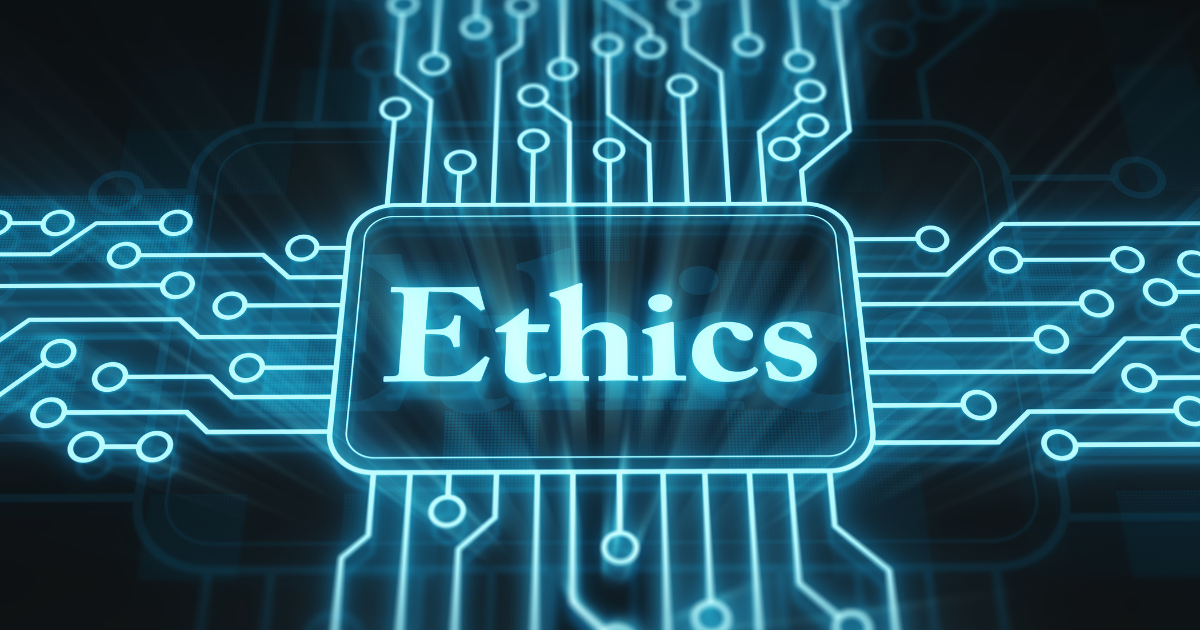As AI systems become increasingly integrated into our daily lives, questions surrounding their ethical implications have emerged as a critical aspect of this technological evolution. Understanding and addressing AI ethics has become paramount, not only for ensuring the responsible development and deployment of AI but also for safeguarding societal values, human rights, and privacy in an increasingly AI-driven world.
This introduction serves as a gateway to explore the multifaceted dimensions of AI ethics, shedding light on its significance in shaping the future trajectory of AI technology and its impact on individuals, communities, and global society.
What Are AI Ethics?
AI ethics encompasses a multifaceted framework aimed at guiding the development, deployment, and utilization of Artificial Intelligence (AI) systems in a responsible and morally sound manner. At its core, AI ethics seeks to address the ethical implications arising from the capabilities of AI technologies and their potential impact on individuals, communities, and society at large. This includes considerations of fairness, accountability, transparency, privacy, safety, and the broader societal implications of AI-driven decision-making processes.
In simpler words, AI ethics endeavors to ensure that AI technologies are developed and deployed in alignment with fundamental human values and rights, promoting trust, equity, and social welfare in the application of AI.
As AI continues to reshape industries and redefine human-machine interactions, ethical frameworks must evolve to address emerging challenges and dilemmas. This requires interdisciplinary collaboration among technologists, ethicists, policymakers, and other stakeholders to develop robust ethical guidelines and regulatory frameworks that uphold human values and promote the responsible development and use of AI technology.

What are AI Ethics?
Why Are AI Ethics Important?
AI ethics is of paramount importance due to several key reasons. Firstly, as AI technologies become increasingly integrated into various aspects of our lives, the ethical implications of their use become more pronounced. Ensuring that AI systems operate in a manner consistent with moral principles and societal values is crucial for maintaining trust and confidence in these technologies. Without ethical considerations, there is a risk of AI systems perpetuating or exacerbating existing societal inequalities, biases, and discrimination.
Secondly, AI ethics is essential for safeguarding fundamental human rights, such as privacy, autonomy, and dignity. AI systems have the potential to infringe upon these rights if not developed and deployed responsibly. For instance, the use of AI-powered surveillance technologies raises concerns about privacy invasion and the erosion of individual freedoms. By establishing ethical guidelines and principles, we can mitigate these risks and protect individuals' rights in the face of advancing AI capabilities.
Furthermore, AI ethics is essential for promoting the long-term sustainability and beneficial impact of AI technology on society. Ethical considerations, such as fairness, transparency, and accountability, are crucial for ensuring that AI systems are developed and used in ways that maximize societal benefits while minimizing harm. By addressing ethical dilemmas and risks associated with AI, we can foster innovation that is not only technologically advanced but also socially responsible and aligned with the greater good.

Why Are AI Ethics Important?
The Future Of AI Ethics
The future of AI ethics is likely to be shaped by ongoing developments in technology, society, and governance. Here are some key trends and considerations that may influence the future of AI ethics:
- Regulatory Frameworks: As AI continues to advance and integrate into various aspects of society, there will be increasing pressure for governments and regulatory bodies to establish clear frameworks for ethical AI development and deployment. This may involve setting standards, guidelines, and laws to ensure that AI systems are developed and used responsibly.
- Transparency and Accountability: There will be a growing demand for transparency and accountability in AI systems, particularly in high-stakes applications such as healthcare, criminal justice, and autonomous vehicles. This includes ensuring that AI algorithms are explainable and auditable, and that there are mechanisms in place to address issues of bias, fairness, and accountability.
- Bias and Fairness: Addressing bias in AI algorithms will continue to be a significant challenge. Efforts to mitigate bias and ensure fairness will involve a combination of technical solutions, such as algorithmic auditing and bias detection tools, as well as organizational practices, such as diverse and inclusive development teams and robust testing protocols.
- Privacy and Data Protection: AI systems often rely on large amounts of data, raising concerns about privacy and data protection. In the future, there will be a greater emphasis on ensuring that AI applications comply with relevant data protection regulations and respect individuals' privacy rights. This may involve techniques such as data anonymization, differential privacy, and decentralized data processing.
- Ethical Decision-Making: As AI systems become more autonomous and capable of making decisions that have significant impacts on human lives, there will be increasing attention on ensuring that these systems make ethical decisions. This may involve integrating ethical principles into AI algorithms, developing frameworks for ethical decision-making in AI systems, and fostering interdisciplinary collaboration between AI researchers, ethicists, and other stakeholders.
- Global Collaboration: AI ethics is a global issue that requires collaboration and coordination across borders. In the future, there will be greater efforts to establish international standards and norms for ethical AI development and deployment. This may involve initiatives such as the development of international treaties, agreements, and guidelines for AI ethics.

The Future Of AI Ethics
In summary, AI ethics is important because it serves as a guiding framework for the responsible development, deployment, and use of AI technologies. Ultimately, AI ethics is essential for ensuring that AI technology serves humanity's best interests and contributes positively to the well-being of individuals and communities worldwide.
Follow HR1Tech for more useful information!
HR1Tech - Nền Tảng Tuyển Dụng Trực Tuyến Ngành CNTT
Tìm việc và tuyển dụng ngành đa ngành. Khám phá thêm tại: www.hr1jobs.com